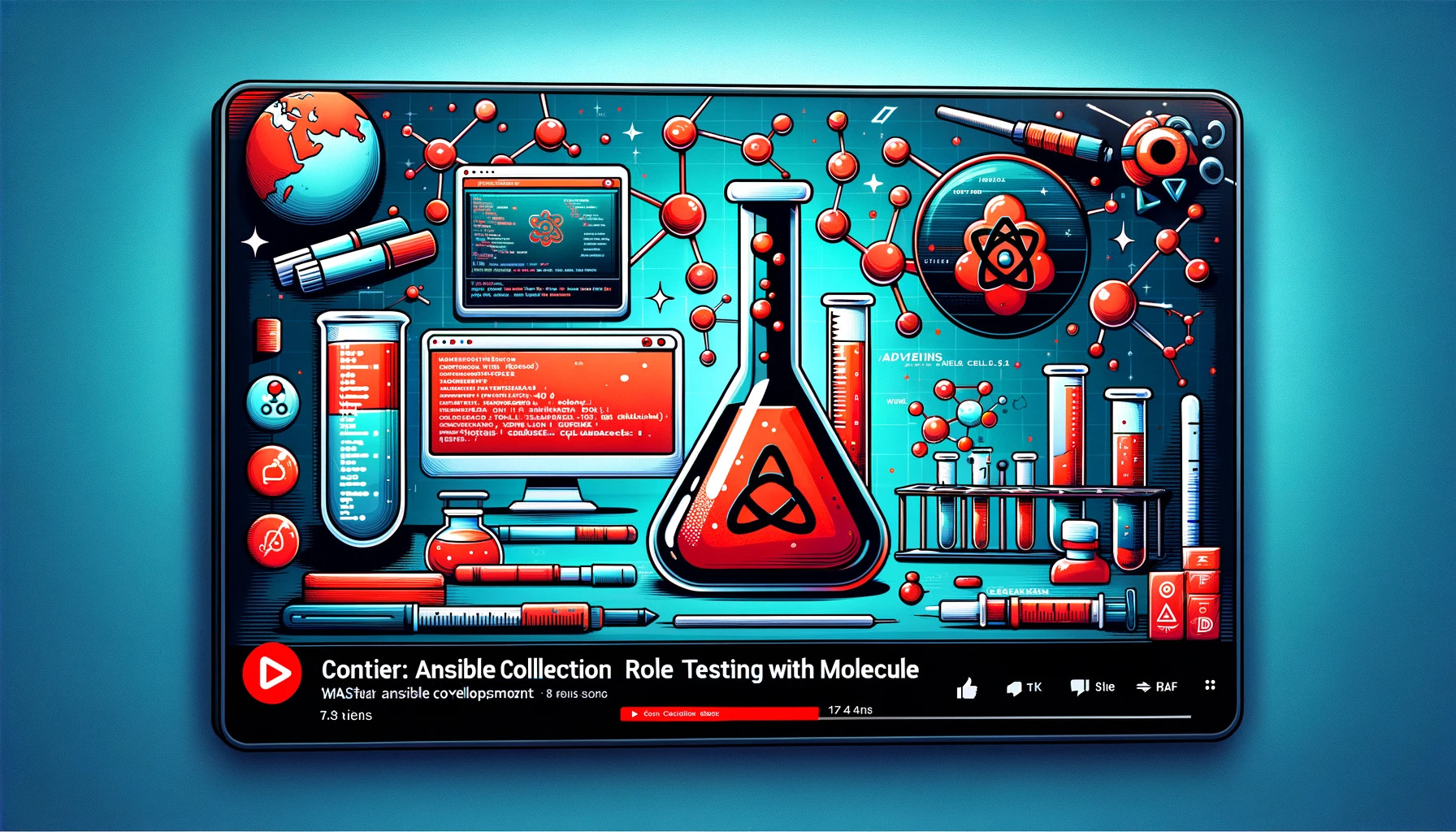Introduction
When developing Ansible roles within a collection, it is crucial to ensure that your code functions as expected and integrates seamlessly with the broader infrastructure. Molecule, a testing framework for Ansible roles, allows developers to automate the testing process, making it easier to catch issues early in the development cycle. In this article, we will explore how to test an Ansible role within a collection using Molecule, with a focus on the converge action.
Molecule in Ansible Collection
Adding Molecule to your Ansible collection is a straightforward process that enhances your development and testing workflow. Start by creating a new directory within your collection named “extensions.” Navigate to this newly created directory using the command line and then initialize a new default Molecule scenario with the following:
cd <path to your collection>/extensions/
molecule init scenario
This step sets the foundation for incorporating Molecule into your collection, allowing you to seamlessly integrate testing and development practices. The newly created scenario within the “extensions” directory becomes a pivotal component in orchestrating Molecule’s testing lifecycle for your Ansible roles and playbooks.
Example Role Structure
To illustrate the testing process, consider the structure of a sample role located at myrole/tasks/main.yml:
---
- name: Task running inside the role
ansible.builtin.debug:
msg: "This is a task from my_role"
This simple task, when executed, prints a debug message to provide a basic Playbooknstration of the role’s functionality.
Configuring Molecule with molecule.yml
The configuration file molecule.yml outlines the testing environment and Ansible provisioner settings. Below is an example configuration:
---
platforms:
- name: instance
provisioner:
name: ansible
config_options:
defaults:
collections_path: ${ANSIBLE_COLLECTIONS_PATH}
In this configuration, we define a single platform named instance and configure the Ansible provisioner. The collections_path option ensures that Ansible can locate the necessary collections during testing.
Customizing the Converge Action in converge.yml
The converge.yml file controls the steps executed during the Molecule converge action. Customize this file based on your role’s requirements. Below is an example that includes a role from the collection:
---
- name: Include role from the collection
hosts: localhost
gather_facts: false
tasks:
- name: Testing role
ansible.builtin.include_role:
name: foo.bar.my_role
tasks_from: main.yml
This snippet Playbooknstrates how to include the my_role role from the foo.bar collection and execute the tasks defined in its main.yml file. Adjust the role and collection names to match your specific project.
By combining these elements, you create a cohesive testing environment for your Ansible roles within a collection. This structured approach facilitates the development, testing, and refinement of roles, ensuring their reliability and effectiveness in diverse environments.
The converge.yml File
Upon initialization of a new Ansible collection, Molecule generates a default file named converge.yml. This file serves as a playbook designed to execute the entire role, covering all necessary steps from start to finish. While the converge.yml file can be modified according to specific requirements, it serves as an excellent starting point for those unfamiliar with Molecule.
To initiate the testing process, developers can use the following command:
molecule converge
This command triggers Molecule to execute the role within an isolated test environment. The process involves performing the necessary steps outlined in the role and halting execution after the converge action. This provides developers with an opportunity to inspect the environment and make any required adjustments.
To execute the test, navigate to the extensions directory within your collection:
cd <path to your collection>/extensions/
Run the following command to trigger the converge action:
molecule converge
This command executes the steps defined in the role but stops after the converge action, enabling developers to inspect the environment and make necessary adjustments during the development process.

Links
Conclusion
In conclusion, leveraging Molecule for testing Ansible roles within collections streamlines the development and debugging process. The converge.yml file, generated by Molecule, serves as a convenient starting point for testing the entire role. Additionally, the ability to use Molecule for live development ensures that developers can iteratively test and refine their roles until they meet the desired standards. By incorporating these testing practices into your Ansible collection development workflow, you can build robust and reliable roles with confidence.
Subscribe to the YouTube channel, Medium, and Website, X (formerly Twitter) to not miss the next episode of the Ansible Pilot.Academy
Learn the Ansible automation technology with some real-life examples in my
Udemy 300+ Lessons Video Course.

My book Ansible By Examples: 200+ Automation Examples For Linux and Windows System Administrator and DevOps

Donate
Want to keep this project going? Please donate
